As new clusters emerge, WHO warns virus may be here to stay
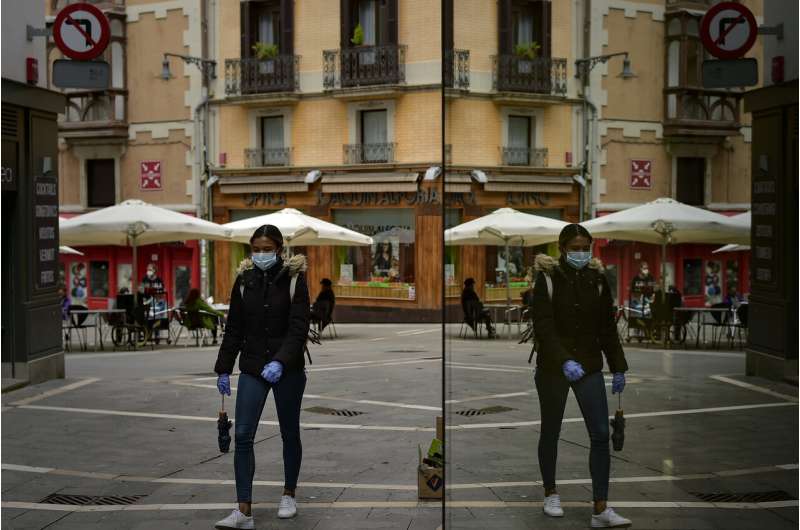
New coronavirus clusters have surfaced around the world as nations struggle to balance reopening economies and preventing a second wave of infections, while a top global health official warned Wednesday that COVID-19 could be around for a long time.
Authorities in the Chinese city of Wuhan, where the pandemic first began late last year, reportedly were pressing ahead Wednesday to test all 11 million residents for the virus within 10 days after a handful of new infections were found.
In Lebanon, authorities reinstated a nationwide lockdown for four days beginning Wednesday night after a spike in reported infections and complaints from officials that social distancing rules were being ignored.
A top World Health Organization official, meanwhile, warned that it's possible the new coronavirus may be here to stay.
"This virus may never go away," Dr. Michael Ryan said in a press briefing Wednesday. Without a vaccine, he said it could take years for the global population to build up sufficient levels of immunity.
"I think it's important to put this on the table," he said. "This virus may become just another endemic virus in our communities," he said, noting that other previously novel diseases like HIV have never disappeared, but that effective treatments have been developed.
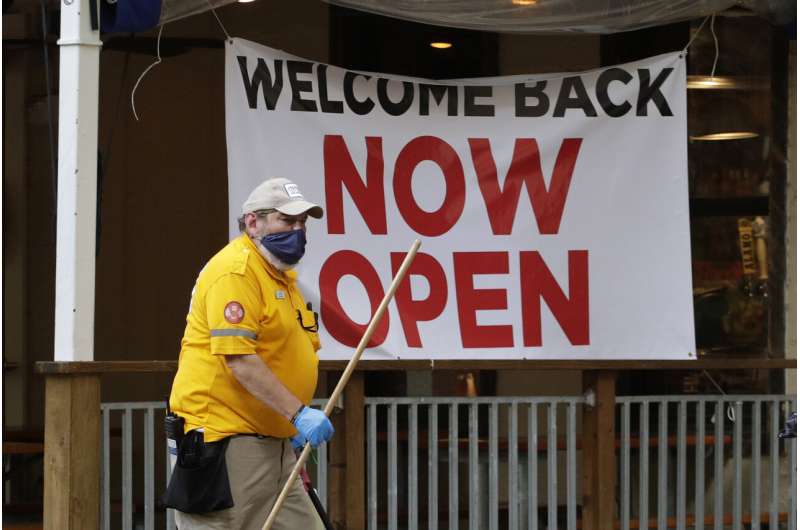
Despite the risk that loosening restrictions could lead to infection spikes, European nations have been seeking to restart cross-border travel, particularly as the summer holiday season looms for countries whose economies rely on tourists flocking to their beaches, museums and historical sites.
The European Union unveiled a plan to help citizens across its 27 nations salvage their summer vacations after months of coronavirus lockdown and resurrect Europe's badly battered tourism industry. The pandemic has prompted border closures across Europe and shut down the lifeline of cheap local flights.
The EU's executive arm, the European Commission, laid out its advice for lifting ID checks at closed borders, helping to get airlines, ferries and buses running while ensuring the safety of passengers and crew, and preparing health measures for hotels.
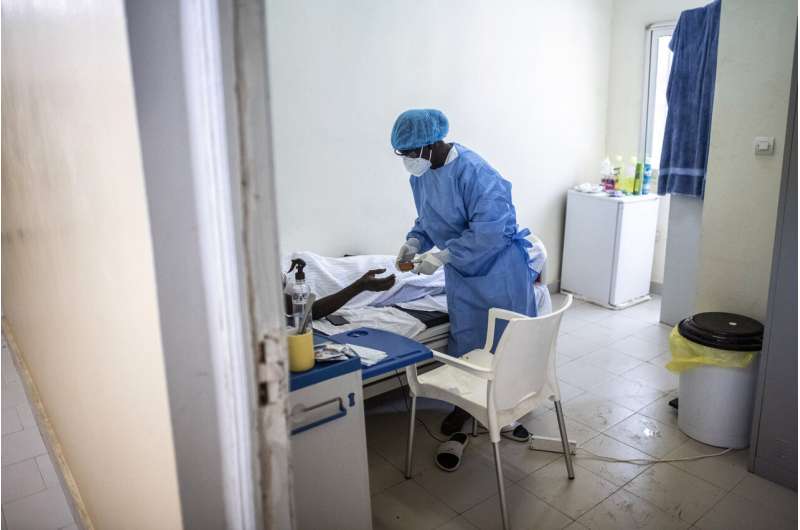
It's not clear whether EU nations will follow that advice, since they, not Brussels, have the final say over health and security matters.
Some European countries have sought bilateral agreements with their neighbors.
Austria said its border with Germany would reopen fully on June 15, and that border checks would be reduced starting Friday. Chancellor Sebastian Kurz said Austria was aiming for similar agreements with Switzerland, Liechtenstein and its eastern neighbors "as long as the infection figures allow."
German Foreign Minister Heiko Mass said his country will lift a blanket warning against foreign travel for European destinations before other places, but didn't specify when. Germany's warning against all non-essential tourist travel abroad runs until at least June 14.
The tension in balancing people's safety against the severe economic fallout is playing out across the world. Italy partially lifted lockdown restrictions last week only to see a big jump in confirmed coronavirus cases in its hardest-hit region. Pakistan reported 2,000 new infections in a single day after crowds of people crammed into local markets as restrictions were eased.
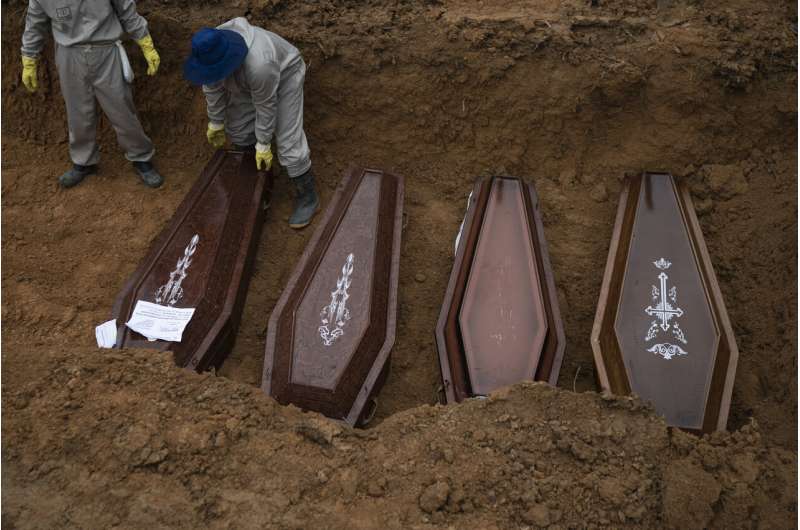
European countries have begun slowly easing their lockdowns, from barber shops reopening next week in Belgium to some schools starting up again soon in Portugal. But a raft of safety rules are being put in place, including reducing the number of children in Belgian preschool classes and various forms of social distancing.
In Sweden, which has taken a relatively soft approach to fighting the coronavirus, allowing primary schools and restaurants to remain open with some social distancing rules, officials urged Swedes not to travel abroad for non-essential trips and to limit movement inside the country.
Travel within Sweden "of up to one to two hours by car can be made," Swedish Prime Minister Stefan Lofven said. "But it does not mean that everything is as it used to be—common sense and great caution apply."

The situation remains unclear in some countries. The U.S. says Tanzania has not publicly released any data on COVID-19 in two weeks. The World Health Organization also has expressed worry about Tanzania, whose president has questioned his own government's virus testing and refused to close churches in the belief that the virus can't survive in the body of Christ. A new U.S. Embassy statement warns that the risk of being infected in Tanzania's commercial hub, Dar es Salaam, is "extremely high" and says many hospitals in the city have been overwhelmed.
Meanwhile, Ryan, the World Health Organization's chief of health emergencies, had a grim warning about coronavirus: Even though an effective vaccine might be developed, it would require immense work to produce sufficient doses and distribute them worldwide.
"Every single one of those steps is fraught with challenges," he said.
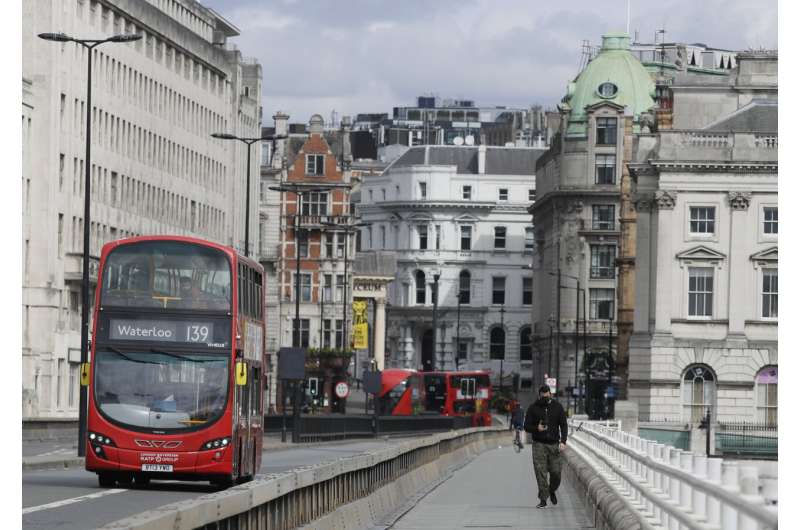
Maria Van Kerkhove, WHO's technical lead for COVID-19, added that she recognized some people were "in a state of feeling quite some despair," but pointed out that stopping the virus even without medical interventions was possible.
"The trajectory of this outbreak is in our hands," she said. "We have seen some countries bring the virus under control."
In the United States, the country's top infectious disease expert issued a blunt warning that cities and states could see more COVID-19 deaths and economic damage if they lift stay-at-home orders too quickly.
"There is a real risk that you will trigger an outbreak that you may not be able to control," Dr. Anthony Fauci said in Senate testimony Tuesday after more than two dozen U.S. states began to lift lockdowns.
His comments were a sharp pushback to President Donald Trump, who wants to right a free-falling economy that has seen 33 million Americans lose their jobs. The U.S. has the largest coronavirus outbreak in the world by far: 1.37 million infections and over 82,000 deaths, according to a tally by Johns Hopkins University.
-
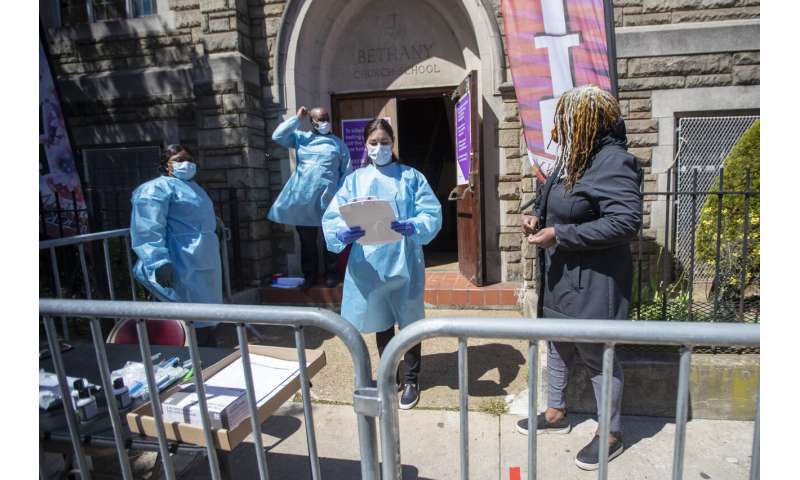
Medical personnel help residents sign in for a COVID-19 test at the Bethany Baptist Church, Wednesday, May 13, 2020, in the Bedford-Stuyvesant neighborhood of the Brooklyn borough of New York. Churches in low income communities across New York are offering COVID-19 testing to residents in conjunction with New York State and Northwell Health. (AP Photo/Mary Altaffer) -
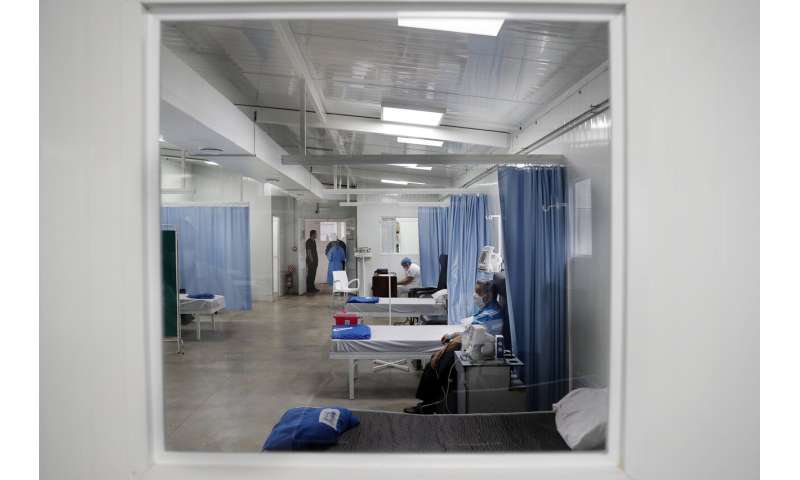
An elderly man recovers from a respiratory illness in a special section built for COVID-19 patients at the INERAM, a hospital specializing in respiratory diseases, in Asuncion, Paraguay, Wednesday, May 13, 2020. Paraguay is one of the least hit countries by COVID-19, with 11 deaths confirmed by the Health Ministry. (AP Photo/Jorge Saenz) -

A woman wearing a face mask to protect against coronavirus, walks by a wedding dress shop in Bucharest, Romania, Wednesday, May 13, 2020. Romania will relax a number of lockdown measures imposed two months ago to limit the spread of the coronavirus starting from May 15. (AP Photo/Vadim Ghirda) -

A child wearing a mask against the coronavirus runs after another as they play on the streets of Beijing on Wednesday, May 13, 2020. (AP Photo/Ng Han Guan) -
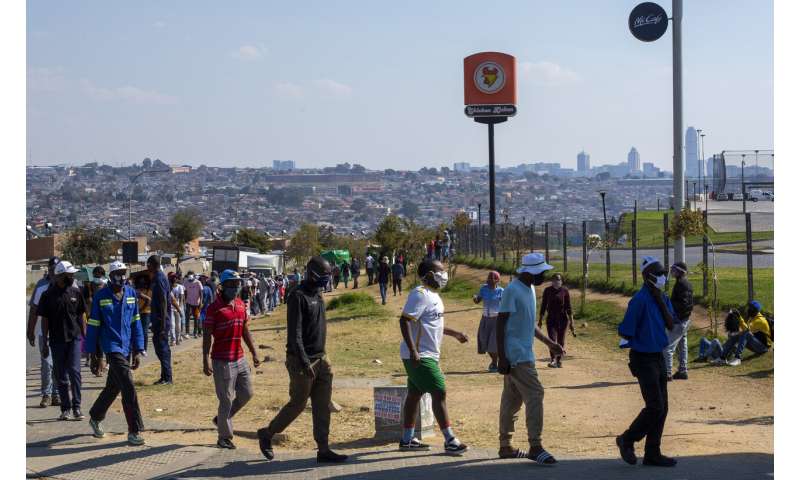
People wearing face masks to protect against coronavirus, queue to walk through a disinfecting spray booths aimed to combat the spread of COVID-19, before doing shopping at Alexandra township in Johannesburg, South Africa, Wednesday, May 13, 2020. (AP Photo/Themba Hadebe) -

People wearing face masks and gloves to protect against coronavirus, observe social distancing guidelines as they walk in the subway on the escalator in Moscow, Russia, Wednesday, May 13, 2020. Wearing face masks and latex gloves is mandatory for people using Moscow's public transport. President Vladimir Putin declared an end to a partial economic shutdown across Russia due to the coronavirus pandemic, but he said that many restrictions will remain in place. (AP Photo/Alexander Zemlianichenko) -
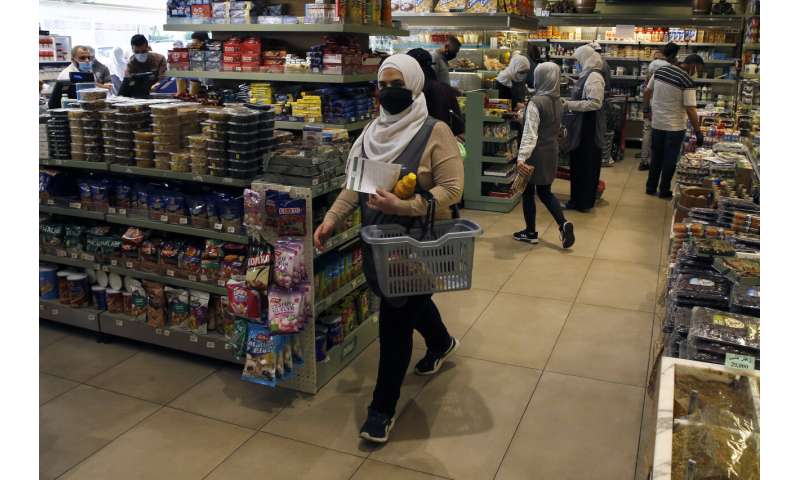
People shop at a supermarket as they begin to stock up on provisions, in Beirut, Lebanon, Wednesday, May 13, 2020. Lebanese rushed to food stores to stock up on vegetables and basic items, hours before the government was to reinstate a four-day nationwide lockdown on Wednesday, following a spike in reported coronavirus cases. (AP Photo/Bilal Hussein) -
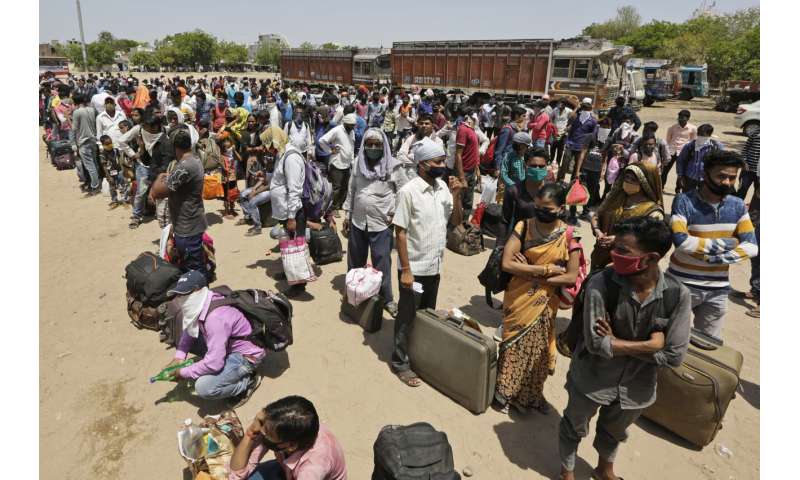
Migrant workers from other states desperate to return to their homes wait for transportation to a train station in Ahmedabad, India, Wednesday, May 13, 2020. The lockdown that began March 25 sent an exodus of workers from its huge informal sector fleeing the cities to their ancestral homes in the countryside. Economists say unemployment reached 24.7% this week. (AP Photo/Ajit Solanki) -

A surfer walks over rocks on Topanga Beach Wednesday, May 13, 2020, in Los Angeles. Los Angeles County reopened its beaches Wednesday in the latest cautious easing of coronavirus restrictions that have closed most California public spaces and businesses for nearly two months. (AP Photo/Marcio Jose Sanchez)
China, the first nation to put a large number of citizens under lockdown and the first to ease those restrictions, has been strictly guarding against any resurgence. In January, it put the entire city of Wuhan and the surrounding region, home to more than 50 million people, under a strict lockdown. A cluster of six new cases recently emerged, the first local infections in Wuhan since before the lockdown was eased in early April.
Worldwide, the virus has infected more than 4.2 million people and killed some 292,000, according to the Johns Hopkins tally. Experts say the actual numbers are likely far higher.
© 2020 The Associated Press. All rights reserved. This material may not be published, broadcast, rewritten or redistributed without permission.




















